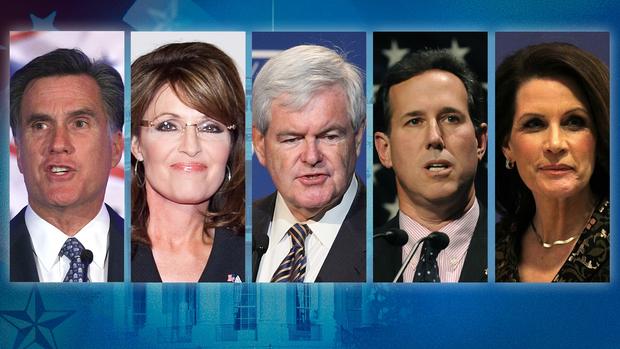Can Rick Perry be the GOP's Tea Party candidate?
Texas Gov. Rick Perry possesses the sort of showmanship and iconoclastic attitude that spurs him to boast about jogging with a pistol -- the type of attitude that would presumably play well with the Tea Party. It turns out, however, that some in the largely conservative movement are turning a wary eye on the Republican governor.
Perry told an Iowa newspaper last week he is starting to feel "called" to run for president. His possible presidential bid has prompted groups to take a closer look at his record as governor.
Last month, as the Associated Press first reported, the New Hampshire Tea Party Coalitionpublished a litany of information about Perry that calls into question his reputation as a conservative. The coalition pointed out, for instance, that Perry in 2001 signed into law the Texas version of the Dream Act, an immigration measure opposed by conservatives. They point out Perry was a Democrat until 1989 and served as Al Gore's Democratic chairman in Texas in 1988. They also link to a blog post entitled, "14 Reasons Rick Perry Would Be a Really Bad President."
Earlier this year, the AP points out, Texas Tea Partiers sent an open letter to the governor chastising him for failing to get a bill passed that would have outlawed "sanctuary" cities to protect undocumented immigrants.
In the more than 10 years he's served as governor, Perry has made other moves that don't sit well with conservatives. For instance, in 2007, he issued an executive order making Texas the first state to require that schoolgirls get vaccinated against HPV, a sexually transmitted virus that causes cervical cancer. The executive order faced fierce opposition from conservatives, and the Texas state legislature voted to overturn it.
Still, Perry has a strong conservative record overall and is often held up as the type of politician that could bridge the divide between the Tea Party and the GOP establishment.
Even though the "sanctuary cities" bill did not pass, it was one of five ideologically-tinged bills he gave "emergency" status to this year, so that the state legislature had to make it a priority. Other "emergency items" included a bill to require a photo ID in order to vote, a bill indicating state support for a balanced federal budget amendment to the U.S. Constitution, and a bill requiring women to get a sonogram before having an abortion.
He's tried to prove himself as a social conservative: In April, with drought-fueled wildfires raging in his state, Perry issued a proclamation calling on Texans to pray for rain. And he promotes small government: In his book "Fed Up," Perry rails against the "arrogance" of the federal government, being "overtaxed and overregulated," and "activist judges," among other things.
So while the Tea Party may still be vetting Perry, there's still a good chance the movement could get behind him, should he enter the presidential race. The Tea Party, it should be noted, is a disparate group with no real leader, so various factions could split when choosing their preferred candidate.
Judson Phillips, founder of Tea Party Nation, notes on his site that Perry came in second in a recent TPN Presidential Preference Poll and wrote that, "Perry's entry into the race will certainly shake things up."
Perry strategist David Carney told the AP that Perry's camp has reached out to Tea Party leadership to build that support. Additionally, political activists who back Perry are organizing in Iowa ahead of the influential Ames Straw Poll in mid-August, while polls show he could enter the race as a strong contender.
Perry came in third place in a new Wall Street Journal/NBC News poll, garnering 11 percent of support -- more than official candidates like Tim Pawlenty or Newt Gingrich. Also, a new Gallup poll shows the Texas governor has a strongly positive image among Republicans nationwide.
If he entered the race, the expectation is that Perry would be a strong fundraiser. On Tuesday night, Perry hosted a private dinner in Austin for some of his top Texas donors, CBS News political correspondent Jan Crawford reports. Meanwhile, his volunteers are laying the groundwork for a major fundraising operation.
Earlier Tuesday, senior Perry advisers met with about 40 Perry loyalists from across the state (who helped Perry raise $44 million in his last gubernatorial race) to discuss his possible presidential campaign, one of the donors told CBS News. The donor said Perry's advisers stressed during the meeting that the governor had not made a decision on whether he will run. But the donor said Perry's wife and children are on board, and it's widely assumed he will get into the race -- although likely not until after the Ames Straw Poll.

